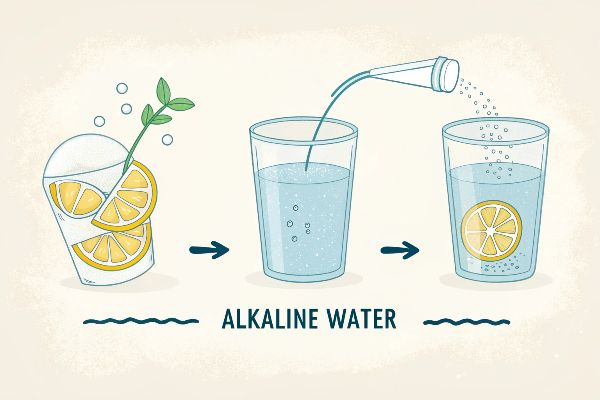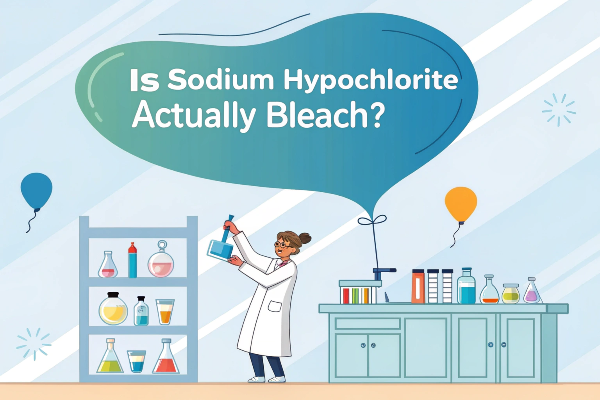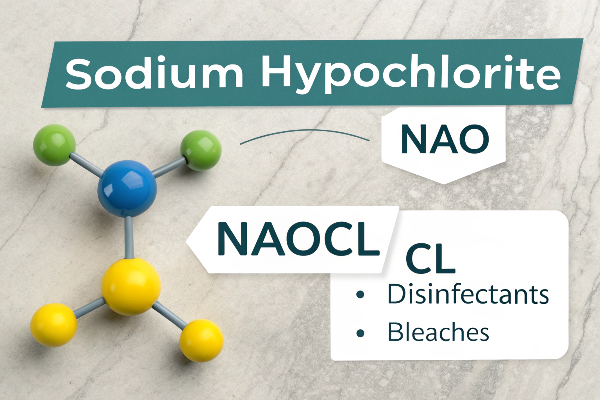Have you ever wondered how bleach gets its powerful cleaning ability? As a CEO of a company specializing in sodium hypochlorite titanium anode, I often find myself explaining the chemistry behind everyday products. Let’s dive into the intriguing world of sodium hypochlorite and its role in bleach.
Sodium hypochlorite is the active ingredient in most bleaches, and for good reason. It’s a potent disinfectant that efficiently kills bacteria, fungi, and viruses. This chemical is not just about keeping your whites whiter; it’s a key player in maintaining hygiene and health standards in various industries.

Bleach is more than just a laundry aid; it’s a multifaceted tool in our hygiene arsenal. But why sodium hypochlorite, specifically? Well, let’s break it down. Sodium hypochlorite is effective yet affordable, making it an ideal choice for both household and industrial applications.
How Does Sodium Hypochlorite Work in Bleach?
When you add bleach to your laundry, you’re introducing sodium hypochlorite into the mix. This compound reacts with water to form hypochlorous acid, a powerful oxidizing agent. It’s this reaction that gives bleach its stain-removing, bacteria-killing power.

What Makes Sodium Hypochlorite an Effective Disinfectant?
Sodium hypochlorite’s effectiveness lies in its ability to break down the cell walls of bacteria and viruses. This disrupts their metabolic processes, ultimately leading to their demise. Its broad-spectrum efficacy makes it an indispensable tool in healthcare, water treatment, and even in our homes.
Why Is Sodium Hypochlorite Preferred Over Other Disinfectants?
In a market flooded with disinfectants, sodium hypochlorite stands out for its balance of efficacy, cost-effectiveness, and ease of use. It’s also relatively safe when used correctly, which is crucial in both household and industrial settings.

How Is Sodium Hypochlorite Produced for Bleach Manufacturing?
The production of sodium hypochlorite is a fascinating process involving the electrolysis of salt water. This process, in which my company specializes, yields high-quality sodium hypochlorite that’s ideal for bleach manufacturing.
What Are the Environmental Impacts of Using Sodium Hypochlorite?
While sodium hypochlorite is effective, it’s not without its environmental impacts. However, it degrades relatively quickly and doesn’t accumulate in the environment, making it a more sustainable choice compared to some other disinfectants.

Are There Any Safety Concerns with Sodium Hypochlorite?
Like any chemical, sodium hypochlorite must be handled with care. It can be corrosive and cause irritation if not used properly. However, with appropriate safety measures and correct usage, it can be a safe and effective tool.
How Does Sodium Hypochlorite Compare to Other Bleaching Agents?
Compared to other bleaching agents, sodium hypochlorite offers a good balance of potency and safety. It’s more stable and safer to handle than some alternatives, making it a preferred choice in various applications.

What Innovations Are Emerging in Sodium Hypochlorite Production?
In our company, we’re constantly innovating to make sodium hypochlorite production more efficient and environmentally friendly. From advanced electrolysis techniques to waste reduction strategies, the future of sodium hypochlorite is exciting.
How Do We Ensure Quality in Sodium Hypochlorite Production?
Quality control is paramount in sodium hypochlorite production. In our facilities, we adhere to stringent standards to ensure that the sodium hypochlorite we produce is of the highest quality, ensuring effectiveness and safety.

How Does Sodium Hypochlorite Impact the Longevity of Fabrics?
Sodium hypochlorite, while effective in removing stains, can affect fabric longevity. Regular use can weaken fibers, especially in delicate fabrics. However, when used correctly and sparingly, it maintains fabric integrity while ensuring cleanliness. It’s a balance between effective cleaning and preserving the life of your garments.
Can Sodium Hypochlorite Be Used in Water Treatment?
Absolutely! Sodium hypochlorite plays a crucial role in water treatment. It eliminates harmful microorganisms, making water safe for consumption. Its use in water purification systems highlights its effectiveness in maintaining public health standards, making it a staple in water treatment processes worldwide.

What Are the Storage and Handling Recommendations for Sodium Hypochlorite?
Proper storage and handling of sodium hypochlorite are key. It should be stored in a cool, ventilated area away from acids and organic materials. Protective gear is recommended during handling to prevent skin and eye irritation. Adhering to these guidelines ensures safety and maintains the chemical’s effectiveness.
How Is Sodium Hypochlorite Impacting Sustainability Efforts?
Sodium hypochlorite’s quick degradation rate aids sustainability efforts. Unlike some chemicals, it doesn’t leave a lasting environmental footprint. Innovations in production are focused on reducing energy consumption and waste, furthering its role in sustainable practices. It’s a prime example of balancing efficacy with environmental responsibility.

Conclusion
In conclusion, sodium hypochlorite’s role in bleach is a testament to its effectiveness as a disinfectant and bleaching agent. Its affordability, efficacy, and safety, when used correctly, make it an invaluable component in maintaining hygiene and cleanliness in various settings. As a leader in this field, I’m proud of the work we do and the products we provide that make a real difference in people’s lives.





